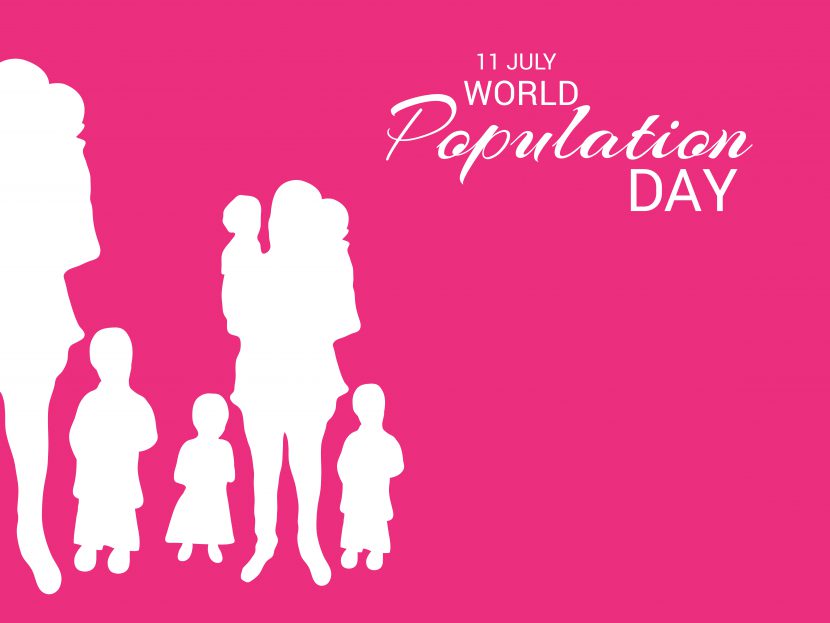World Population Day on July 11 2019 celebrates its 30th anniversary as a day of international recognition for the human right to family planning. Humanium is taking the occasion to celebrate the United Nations’ promotion of this issue which resides at the heart of child liberties and wellbeing.
World Population Day offers a poignant moment to reflect on the role that rights protection plays in the promotion of children’s rights, the right to education, to healthcare and gender equality for people both across the globe and within our communities.
How are we interacting in our own populations? What more can we be doing to contribute to the equal provision of rights for all?
What is World Population Day?
Founded in 1989 by the ‘United Nations Development Programme’ in response to the world population reaching 5 billion people, this day serves to commemorate the nine key standards which consecrated the right to family planning 30 years ago (United Nations, 2019):
1. Non-discrimination
2. Availability
3. Accessibility
4. Acceptability
5. Good quality
6. Informed decision-making
7. Privacy and confidentiality
8. Participation
9. Accountability
The ‘United Populations Fund’ (UNFPA) works to improve national health systems, access to contraception and to advocate for policies that support the freedom of family planning. Its mantra declares a vision of a near future with “sexual and reproductive healthcare, every pregnancy wanted, every childbirth safe and every young person’s future fulfilled” (UNFPA, 2018).
This year the commemorative event at the ‘United Nations Population Award Ceremony’, will host the 2019 winners ‘National Peace Hut Women of Liberia’ who help women and former child soldiers become agents of change in their communities following the country’s civil war (UNFPA, 2019). An inspirational effort, but also an important reminder of the tremendous amount of work still to be done.
In 2018 the Executive Director of UNFPA, Natalia Kamen, said that family planning is “a matter of human rights” and that they “are striving to end all unmet need for voluntary family planning in developing countries, by 2030” (United Nations News, 2018). Undoubtedly, they have a long way to go. By relocating the resources, participation and control of development projects firmly into the hands of affected people, they are afforded the agency to shape their own lives and futures; an important premise for maintaining mutual respect and dignity going forward.
Global Population Data Summarised
- Total population in billions: 7,715
- Population ages 0 – 14: 26%
- Children married or in union before age 18: 1/5
- Maternal mortality ratio per 100,000 births: 79
- Child birth rate per 1000 girls aged 15 – 19: 44
- Births attended by skilled health personnel: 79%
(UNFPA, 2019)
What are the implications of our increasing population for children?

World Population Day is particularly close to our hearts at Humanium due to the focus it throws on the rights of children; namely those of young girls.
Reproduction and childbirth are topics which highlight the issues of child marriage, teenage pregnancy and Female Genital Mutilation. These continue to be grave and widespread phenomenons to this day in spite of the rights that were enshrined in articles 19, 29 and 34 of the Convention of the Rights of the Child, and articles 16, 25 and 26 of the Universal Declaration of Human Rights last century.
Access to effective healthcare and education services become key questions in light of these immensely serious challenges that must not go unforgotten or remain shadowed. The ability for children and young people to have equal access to schooling is a key premise for improving gender equality, good health, and the protection of the most vulnerable and disadvantaged families.
What can World Population day teach us?
At Humanium, we take this day – as an organisation and as individuals – to reflect upon our duty and our mission to work in solidarity for the fulfilment of children’s rights.
The recognition of persisting inequalities imposed by our global societies on access to the fundamental resources and services which constitute not only our standard of living, but our life-long wellbeing, is one key step to deconstructing these harmful disparities. Nurturing our compassion is a continuous task: it is easy to get caught up in the current of our own lives and distanced ever-further from those of others in the process. That is why days such as World Population Day can serve as important reminders to draw us back towards our collective humanity and action.
Supporting and participating in policies and initiatives that remove barriers and promote equal access to family planning services, healthcare and education is a labour of compassion that all of us can undergo in order to care for each other, the children of today and those of the future. To do this we can organise within our immediate populations, we can use our resources, our electoral power when we vote, and we can speak fearlessly in support and advocacy of undoing discriminatory mechanisms and providing our youth with the freedom of choice that they deserve.
This duty belongs to everybody, including to us at Humanium, since it is our very raison d’être to see children’s rights respected and fulfilled. Today we renew our resolve and devotion to this end towards which we strive with our current projects, including one in Madhya Pradesh, India, that aims to strengthen local actors of change in the community by supporting the efforts of ‘Hand In Hand India‘ in providing a residential shelter, educational training centre and psychosocial support to at-risk and disadvantaged children.
Human rights are, crucially, not phenomenons that can only be adopted by international officials, but something that everybody can work together to protect.
Written by Josie Thum
Citations
United Nations, ‘World Population Day 11 July’, United Nations Events (2019), Retrieved from: https://www.un.org/en/events/populationday/index.shtml, accessed 09/06/2019.
United Nations Population Fund, Strategic Plan 2018 -2012 (2018), Retrieved from: https://www.unfpa.org/strategic-plan, accessed 09/06/2019.
United Nations Population Fund, ‘United Nations Awards Ceremony’ (2019), Retrieved from: https://www.unfpa.org/events/united-nations-population-award-ceremony-1, accessed 09/06/2019.
United Nations News, ‘World Population Day: “A matter of human rights” says UN’, (2018), Retrieved from: https://news.un.org/en/story/2018/07/1014371, accessed 09/06/2019.
United Nations Population Fund, “Download Global Data”, World Population Dashboard (2019), Retrieved from: https://www.unfpa.org/data/world-population-dashboard, accessed 09/06/2019.
Supporting Material
United Nations Population Fund, The Maternal and Newborn Health Thematic Fund Case Studies on Strengthening Midwifery Services to Avert Maternal and Newborn Deaths (2019), Retrieved from: https://www.unfpa.org/publications/maternal-and-newborn-health-thematic-fund-case-studies-strengthening-midwifery-services, accessed 09/06/2019.
United Nations Population Fund, Humanitarian Action 2019 Overview (2019), Retrieved from: https://www.unfpa.org/humanitarian-action-2019-overview> accessed 09/06/2019.
The United Nations Population Fund, ‘Child Marriage’ (2019),https://www.unfpa.org/child-marriage


